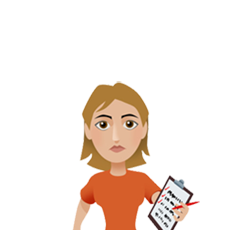Should Your Kids Be Responsible for Their Own Systems Yet?
With ADHD kids, milestones are often delayed. Parents have to be involved in managing things – like making sure a teenager gets out of the house on time for school, or instructing a preschooler on how to pick up his blocks every single time he plays with them – for longer than they would with typical children. It can feel like you’ll be your kids’ alarm clock for life! Download a free tipsheet "The Parent's Guide to Motivating Your Complex Kid" to help your child find the motivation to do... anything and everything! But you don’t have to be. When you teach your kids to use systems and structures, offering them the guidance and support they need, step by step you can let them take over. When? That’s going to depend on your child. Your child’s timeline is completely individual. As parents, our job is to set reasonable, realistic expectations for our kids. Most of us tend to focus on where we ultimately want our kids to be and try to work from there. This can be a daunting and exhausting approach. Instead, we need to be understanding of their processes, and curious about what they can do now. Then we can challenge them to get to the next level. At our house, for instance, everyone has weekend chores to do. How I hold everyone accountable to them has changed over the years. Another example many parents face is getting their kids into the routine of taking medication or daily vitamins. Not everyone uses medication to manage ADHD, but if you do have a child who does, it’s important to take it as prescribed. Let’s take a look at some systems and structures that you can put in place here: Every challenge – whether it be getting chores done or taking medication – requires different structures and systems, implemented at different stages. Maybe as an adult, your child will remember to take medication. Or maybe there will always be a need for a reminder like an alarm on the phone, or that good old days-of-the-week container. That’s fine – that’s great, actually. When your child learns the value of these systems and is using them independently, that’s what we want! It just takes a while to get there. It’s all about progression: each step brings us forward, even if slowly. I would love to say that your kid will wake up at age 14 and magically be able to do all the things a teenager should be doing. Or your 8-year-old will come home from school one day and perform at the exact same level as his typical peers. Instead, though, try to look at growth over time. You might reflect, “Wow, he is so much more independent than he was last year.” Or, “This task or chore used to be so difficult, and it’s much easier.” Celebrate those wins; and then get ready for the next challenge! Download a free tipsheet "The Parent's Guide to Motivating Your Complex Kid" to help your child find the motivation to do... anything and everything!
Hanging Up The Manager Uniform
Article continues below...
Want to Motivate Kids?
Accountability
Routine
Every Challenge (And Child) Is Different.
Want to Motivate Kids?


